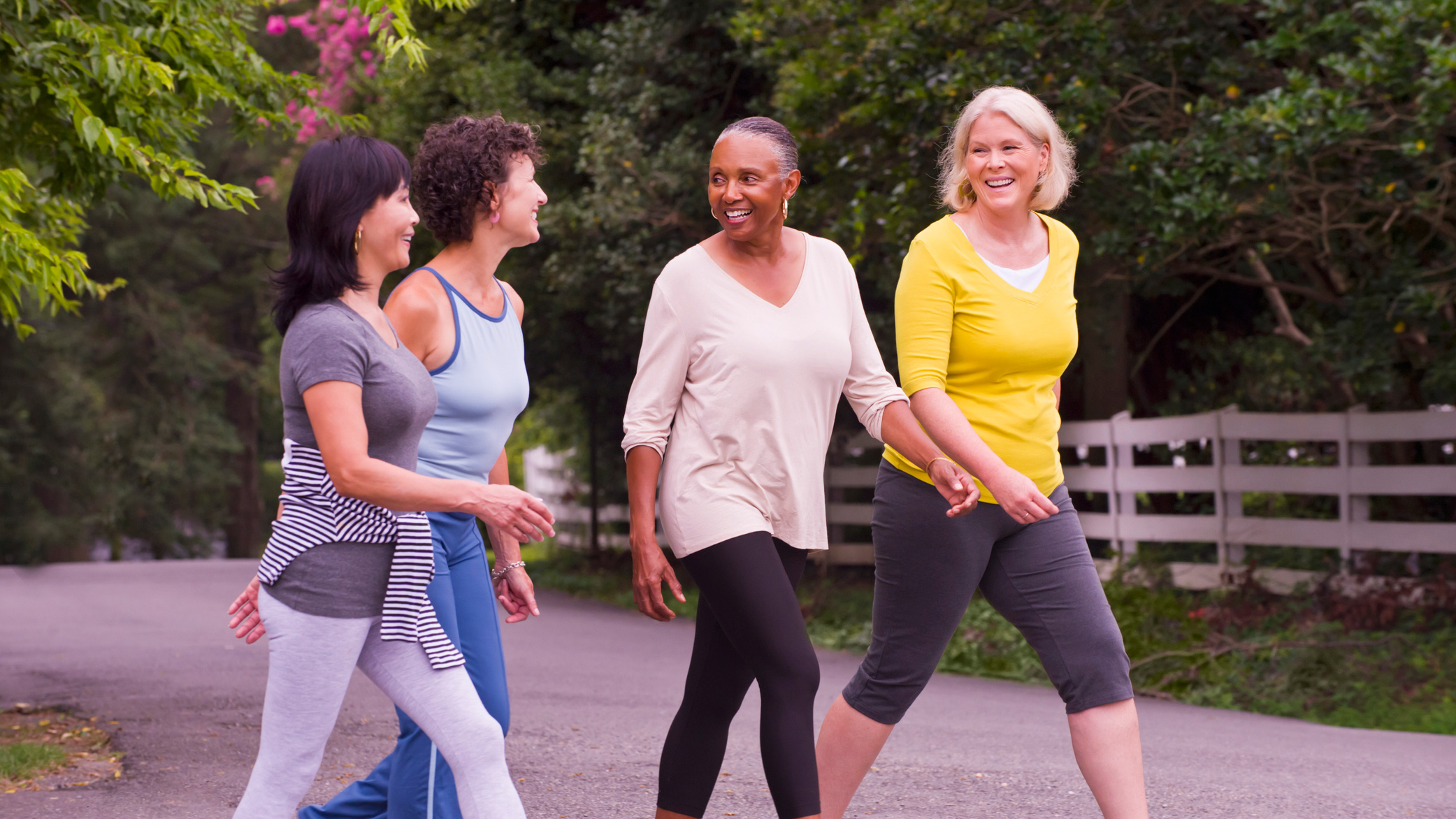Research finds postmenopausal women should up their walking pace to live longer
A study of over 25,000 women found those who walked faster had a lower risk of heart disease


Start your week with achievable workout ideas, health tips and wellbeing advice in your inbox.
You are now subscribed
Your newsletter sign-up was successful
The menopause and perimenopause periods are associated with a host of different symptoms. Some of these include weight gain, slowing metabolisms, and other precursors of metabolic syndrome, which can increase the stress on our hearts.
All this is very normal and nothing to be afraid of, but it does mean women in this phase of their life should be taking the best menopause supplements, eating healthily, and taking regular exercise. Even moving a little bit more intensely in day-to-day life can benefit health in postmenopause, according to new research.
The researchers from Brown University found that compared to the women in the study who walked at a leisurely pace, those who walked at an "average" pace had a 27% lower risk of heart failure. Those who were found to walk at a "fast" pace had an even bigger decrease, at 34% lower risk compared to the slow group.
The researchers write: "Given that limited time for exercise is frequently given as a barrier to regular physical activity, walking faster but for less time might provide similar health benefits as the recommended 150 minutes per week of moderate physical activity."

Of course, walking to lose weight can range in intensity, from epic hikes across mountain ranges to walks around the block during lunch. With the news walking faster can improve heart health, it's good to know that walking in general, not just as a dedicated form of exercise, can help offset your sedentary lifestyle.
Walking to the shops rather than taking the car, or taking a stroll around the block once a day, can all contribute to your total step count, helping you to lose weight and improve heart health.
Even interrupting your periods of sitting with simple movements such as walking to the bathroom, or making a cup of tea, can prevent some of the damage of too much sitting, according to research. In addition, English Health Surveys found people who walk fast for 30 minutes a day were found to have a lower BMI, making them generally more likely to be at a healthy weight.
Start your week with achievable workout ideas, health tips and wellbeing advice in your inbox.
Want to improve your heart health in a slightly different way? Stretching can also improve circulation. Our beginner's guide to stretching exercises is a great place to start.
Matt Evans is an experienced health and fitness journalist and is currently Fitness and Wellbeing Editor at TechRadar, covering all things exercise and nutrition on Fit&Well's tech-focused sister site. Matt originally discovered exercise through martial arts: he holds a black belt in Karate and remains a keen runner, gym-goer, and infrequent yogi. His top fitness tip? Stretch.
